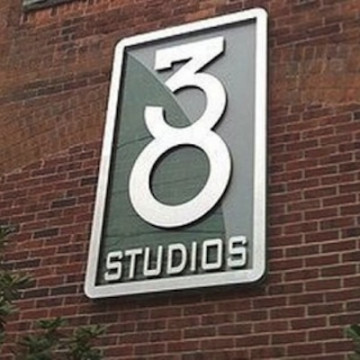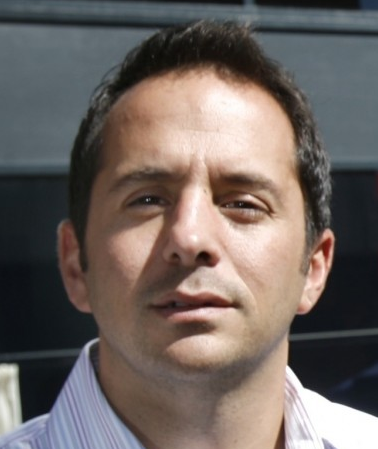Bishop: 38 Stabilizations - Neverending Prov Tax Giveways are 38 Studios Redux
Thursday, January 07, 2016
38 is about how many Tax Stabilization Agreements (TSAs) there are currently active in Providence. But other than the number of deals, what do these TSAs have to do with 38 Studios? Don’t we have something to show for them? Isn’t there some renaissance in process? These aren’t failed ventures are they?
Well, to hear developers tell it, they are failed projects, or will be if the city doesn’t bail them out again!
These giveaways were meant to enable projects that would not otherwise be built by abating their taxes for a decade, after which, they would pay significantly more taxes than the property would have otherwise commanded. Even taxpayer advocates in Providence didn’t necessarily think that was a bad idea. The Governor and the I-195 commission are still pushing these agreements like they are going out of style. That may be good for the state, but it has done little for the city.
Here’s the problem: These 10 year agreements have somehow managed not to expire! In an insider oriented end run, all were extended for five years in 2010 by the state legislature. That’s right, the state legislature giving away Providence’s taxes for projects already completed and scheduled to increase the city’s tax base. Like connected interests whose behavior helped lead to the real estate bust, these developers got a government bailout while the rest of us shouldered the full burden through the recession.
But now, after 15 years of the taxpayer biting the bullet, these projects will finally start paying their taxes. Not so fast. As of this date, the holders of 9 of these agreements have petitioned the Council for yet another 5 year extension. This time they are willing to pay a little more, about half the bill, rather than the 10¢ on the dollar or less they have been paying. Four developments associated with rich Providence developer Buff Chace already received extensions from the lame duck Council a year ago. And now, 5 more buildings are before the Council offering no new construction, no jobs, nothing. They just don’t want to pay high taxes. Ditto for every taxpayer in Providence, welcome to the club.
The excuse they offered at a recent council hearing: It’s the city’s fault. By allowing their taxes to be so low for so long they had gotten used to it. Despite the clear contractual obligation to pay full taxes when their TSAs expired, they aren’t ready for it and need to ease into tax payments.
GET THE LATEST BREAKING NEWS HERE -- SIGN UP FOR GOLOCAL FREE DAILY EBLASTMaking the Many Subsidize the Few.
But if these projects don’t pay their full taxes, it raises everyone else’s. In 2010, the brunt of the giveaway was borne by small apartment buildings when then-Mayor Cicilline closed the gap created when the state extended these giveaways by increasing non-owner occupied taxes by 50% in one year rather than see a homeowner increase while he was running for Congress. So these TSA projects that were attracting renters away from the city’s existing apartments were actually being subsidized almost wholly by their competitors. Nice work if you can get it.
But this is not an issue just for apartment owners. The city council has made clear that the price of these latest extensions is likely to fall on single family homeowners, with both Council President Aponte and various state observers suggesting that an increase in homeowners taxes is the low hanging fruit to stave off state oversight and balance the budget.
Schilling and Corso’s Comments Show Why This is 38 Studios Redux.
Of course its popular to malign public/private ‘partnerships’ by comparing them to 38 Studios. But there is a very important similarity between 38 Stabilizations and 38 Studios that city policymakers should keep in mind.
In some of his first public comments since the 38 Studios bankruptcy, Curt Schilling maintained that RI romanced him and not vice-versa. And he deflects questions about crony corporatism by arguing that no one would turn down a capital infusion for their startup, regardless of the terms or possible conflict with the notion of markets free of government favoritism.
Well that is evident in Providence, where all developers claim they can’t build without giveaways. Providence taxes are high, but they should be lower for everyone, not the few. And the City fathers simply do not have the capability to vet these projects, many of which could be built without such subsidy. But Schilling’s point is, if these are being given out like candy, developers would be stupid to turn them down.
And Michael Corso, the poster child for highly paid consultants who intend to enrich themselves at taxpayers expense through these deals, has recently suggested that the state’s failure to throw good money after bad in film tax credits for 38 Studios is a breach of promise. It certainly was a comeuppance for lobbyists like Corso who are used to driving what happens. But by seeking the credits in the first place, with 38 Studios teetering on bankruptcy, the implication is: once the state subsidizes a project, it has a duty to continue subsidizing.
Consultants Say We Must Subsidize These Projects Until They Tell Us We Can Stop.
Consultants in the Corso mold are telling us precisely the same thing about 38 Stabilizations. Once the city gave the first tax break, they are compelled by this reasoning to give breaks until the project is profitable. If the projects are never profitable then these breaks should continue perpetually. Otherwise, this raft of well paid consultants tells us, these projects, and Providence by association, will look like failures.
These buildings aren’t going to be closed and boarded up. If they have to pay taxes like everyone else and experience cashflow problems, there might be renegotiation with lenders, or some ownership reorganization. The only failure that could really be alleged would be the city’s failure to prop up connected developers. Those are the kind of failures Providence’s taxpayers, existing businesses and legitimate businesses that would think of locating here should celebrate.
And in many cases these buildings seeking extensions were sold as condos to individual owners before the recession, with sales beginning in 2004! So it is actually condo boards asking for the extensions! How could buildings that were completed a decade or more ago, having sold for good money, possibly look like failed undertakings that could hurt Providence’s reputation?
Real Question Is Not Should We Extend, But Were These Even a Good Idea In the First Place!
At a very real-politic level, unless there are significantly more permanent jobs created than residences under these programs, we have no hope of attracting new residents to the city. Thus these residential projects don’t reliably increase the city’s tax base even if they ever get around to paying taxes. Without a growing economy, these developments poach residents from the existing tax base. One proponent of continued tax favoritism for these projects boasted of leaving the east side for his subsidized adventure. When enough people leave the neighborhoods and traditional housing base for subsidized buildings, that reduces the value of the existing tax base! Even the vaunted east side is feeling the effects of this competition with higher vacancy rates.
If you, as a Providence taxpayer or a state taxpayer, are tired of subsidizing developers who simply don’t want to pay their property taxes, you can join the Stop Tax Evasion in Providence (STEP) coalition at Providence City Hall tonight, Thursday, Jan 7th at 6 PM. We want to let the mayor know he’ll be on Santa’s naughty list if he keeps supporting these extensions. Indeed, Golocal covered recently released footage from the campaign that shows the mayor promising to aggressively hold the line on these agreements and make sure that the projects compensate the city adequately in other ways. Why has that resolve crumbled?
And we’ll meet the City Council to warn them that coal could be in their stockings next Christmas – or worse, next election -- if they fall in with the mayor to give away $3 million to 5 projects with the city facing high deficits and high taxes. If you can’t make city hall tonight, you can join by SIGNING THE PETITION opposing these giveaways and our Coalition committed to Stopping Tax Evasion in Providence will make sure to deliver your concerns to the Providence pols.
Brian Bishop is on the board of OSTPA and has spent 20 years of activism protecting property rights, fighting overregulation and perverse incentives in tax policy.
Related Slideshow: Seven 38 Studios Facts You Would Not Believe
Here are the seven facts that you would not (want to) beleive about the 38 Studios deal.
Related Articles
- Bishop: What Do The State House & Downton Abbey have in Common? An abiding sympathy for King Canute
- Brian Bishop: A Turning Point in RI: Will Voters Approve a Constitutional Convention?
- Bishop: Keeping the Pawtucket Red Sox Without Seeing More Red in Providence
- Bishop: Taylor Swift Move Over
- Bishop: Transformation – So Far it’s All Talk in Providence
- NEW: Bishop Tobin Questions If Elorza is an Atheist
- Guest MINDSETTER™ Bishop: Providence Home Owners Beware
- RI State Report: Grants For Vets + Bishop Tobin Switches Parties
- NEW: Bishop Tobin Criticizes Nelson Mandela’s Abortion Stance
- NEW: First Openly Gay Episcopal Bishop to Speak at URI
- Brian Bishop: Rhode Island Energy Policy: The Gift That Keeps on Taking
- NEW: Nathan Bishop Middle School in Providence Cancels Graduation
- NEW: Nathan Bishop Graduation Ceremony Back On
- Controversial Comments by Bishop Tobin Over the Years
- Bishop: Constitution Day at Brown - What’s the State of Our More Perfect Union?
- RI’s Thomas Tobin: Is He America’s Conservative Bishop?
- Bishop: For Whom the Bill Tolls
- Bishop: Calm Yorke More Outrageous Than Brash Trump
- Bishop: Hitchhikers Guide to Vaccine Mandates
- Bishop: Labor Piece Agreements . . . as in Piece of The Pie
- Providence School Board Head Calls for Investigation into Nathan Bishop
- Bishop: With ‘help’ like this…? - State Policy For Providence A One-Way Street
- Bishop: Bridges, Tolls and a Tale of Three States
- Brown Grad Williams Elevated to Bishop Designate
- NEW: Episcopal Bishop Apologizes for Sexual Abuse at St. George’s
- Gencarella: RI Stands Apart From a World Where Change Is the Only Constant
- Pam Gencarella: Context Is What’s Needed - Part I
- Pam Gencarella: Surprised, Bewildered, Shocked, Disappointed
- Pam Gencarella: What’s All the Fuss About RhodeMap RI? If You Like Your Municipality, Keep It
- Gencarella: What Side Are You On? Do Organizations & Consortium Members Really Support RhodeMap RI?
- Pam Gencarella: Is the Pendulum Swinging Back Toward the Center?
- Pam Gencarella: Don’t Touch That Dial
- Pam Gencarella: RI Has Lost Cabin Pressure
- Pam Gencarella: Witness the Crowding Out of Public Services
- Pam Gencarella: Why You Should Care About a Constitutional Convention
- Pam Gencarella: It’s Easy to Vote for Santa
- Gencarella: Are Local Governments Kidding Themselves?
- Pam Gencarella: Where Does Raimondo’s Vision Put Us in Five Years?
- Gencarella: Rhode Island - The Rule of Lawlessness
- Gencarella: Is RI On A Path To Socialized HealthCare?
- Gencarella: It’s Time to Brew Our Own Coffee and Cut Out the Coolattas
- Gencarella: Is There a Movement Afoot
- Gencarella: TOLLS - Trucks Today, Cars Tomorrow.
- Pam Gencarella: The Twilight Zone
- Gencarella: RI Firefighters: Public Servants, Hardly Indentured Servants
- Gencarella: Can We “Make it in RI?”
- Gencarella: Public Union Benefits Limit What Our Government Can Do For Taxpayers.
- Gencarella: A Drop In The Proverbial Ocean State Budget
- Gencarella: Let’s Leave It A Local Issue
- Gencarella: ’Twas the Night Before Session

















